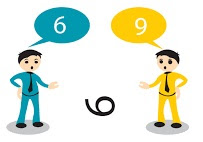How to identify your core values?

The identification process is iterative, and anyone can do it by themselves through analysis. It may be challenging for some people to identify by themselves, and for those, i recommend seeking help from the coaches.
Values are nothing but some of the principles we stand for or the importance or priority we give in life for most of the time. Those values will drive our behaviors, decisions, and actions on a personal and professional front.
Whether we realize it or not, each one of us has inherent values within us that are driving us every moment. We might have acquired from our parents, childhood experience, or even with current experiences. The more we are sure about our core values, it will help us make the right decisions during challenging times and emotionally healthy.
How to identify the values?:
- Go through the list of values and identify the favorable values with which you are associating yourself frequently or the unfavorable values which you do not like to be associated with. Given below some of the lists of values, you may get more than 200 values when searching on the web. My suggestion would be not to get into the searching for a list, and you do the self-analysis, identify and label on your own as it would reflect you correctly without bias.
Favorable Values:
Growth /Love / Challenge / adventure / Pride in achievement / making difference / individuality / creativity / passion / honesty / integrity/stability / freedom / achievement / contribution / gratefulness/ courage/ expressive / fun / harmony/ power / peace/happiness/secured/ intimacy /sense of control/intelligence/ success/ sharing /giving / family/ career / money/ compassion/Loyalty/
Unfavorable Values:
Anger/ Guilty / Being control/ rejection / failure/ insecurity/ jealous/ sadness/ humiliation/ victimized/worry/ instability/ mediocre
2. First, choose the top 10 values you are associating with either favorable or unfavorable values, and further analyze and bring to the top 3. It would be challenging to prioritize the top 3 values. In that way only, you are clear about your values.
As said, this is an iterative process. The more you spend yourself, the more clarity on your preferences.
The awareness of your preferences, principles, or what you stand for gives more clarity to deal with life challenges. Internally, it will help you have a balanced emotional level. Also, it allows you to design your professions inline with your values.


















